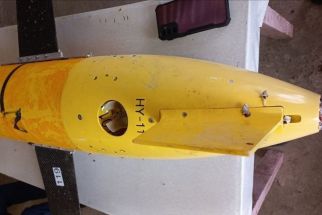Nurses biggest $ remitters — WU exec
July 14, 2006 | 12:00am
They’re nursing the Filipino economy.
Filipino nurses in the United States and Europe as well as entertainers in Japan send more dollars to their families compared with other overseas workers, a money transfer firm executive said yesterday.
A skilled laborer abroad would send back home an average of $300 a month while the amount is double for nurses and entertainers, said Patricia Riingen, vice president of Western Union Philippines, one of the biggest money transfer companies in the world.
Attesting to this, an overseas Filipino worker (OFW) who is also a nurse like his sister said his sibling working in the United Kingdom sends home at least $1,000 a month.
Thousands of Filipinos have been drawn into the health care industry abroad because of higher pay. Even doctors here reportedly study to become licensed nurses, particularly in the US.
Remittances from OFWs are said to be the lifeline of the Philippine economy.
Data from the think tank IBON Foundation showed OFW remittances reaching $12 billion in 2003, of which $10 billion was sent to their families in the country through formal channels such as banks and money transfer firms.
On the other hand, an Asian Development Bank study noted that actual remittances from the more than eight million Filipinos abroad could actually reach as much as $22 billion if remittances that go through informal means are counted.
Steve Peregrino, Western Union marketing manager in the Philippines, said the major sources of workers’ remittances are the US, United Arab Emirates, Saudi Arabia, Italy, Hong Kong and Japan.
The bulk of OFW remittances, however, goes to basic needs such as house rent, clothing, food and education. Little goes to their savings.
"The transfer is faster and we do not have hidden charges," Peregrino said of the process in money transfer firms. "So kung urgent ang pangangailan sa pera, mas madali rin nilang nakukuha unlike in banks na kailangan pang hintayin ng ilang araw (If the need for money is urgent, families could easily get it unlike in banks where they have to wait for days)."
According to Riingen, Western Union is hoping to expand by 20 percent its present location count in the country within a year to take advantage of increasing OFW deployment and the continued demand for remittances to support the basic needs of OFW families.
Western Union Philippines at present has 5,000 agent-locations.
"The company wants to look for additional locations particularly in the Visayas and Mindanao areas that are still under-served. These (new locations) can come through tie-ups with banks, pawnshops or even convenience stores," explained Riingen. — James Mananghaya
Filipino nurses in the United States and Europe as well as entertainers in Japan send more dollars to their families compared with other overseas workers, a money transfer firm executive said yesterday.
A skilled laborer abroad would send back home an average of $300 a month while the amount is double for nurses and entertainers, said Patricia Riingen, vice president of Western Union Philippines, one of the biggest money transfer companies in the world.
Attesting to this, an overseas Filipino worker (OFW) who is also a nurse like his sister said his sibling working in the United Kingdom sends home at least $1,000 a month.
Thousands of Filipinos have been drawn into the health care industry abroad because of higher pay. Even doctors here reportedly study to become licensed nurses, particularly in the US.
Remittances from OFWs are said to be the lifeline of the Philippine economy.
Data from the think tank IBON Foundation showed OFW remittances reaching $12 billion in 2003, of which $10 billion was sent to their families in the country through formal channels such as banks and money transfer firms.
On the other hand, an Asian Development Bank study noted that actual remittances from the more than eight million Filipinos abroad could actually reach as much as $22 billion if remittances that go through informal means are counted.
Steve Peregrino, Western Union marketing manager in the Philippines, said the major sources of workers’ remittances are the US, United Arab Emirates, Saudi Arabia, Italy, Hong Kong and Japan.
The bulk of OFW remittances, however, goes to basic needs such as house rent, clothing, food and education. Little goes to their savings.
"The transfer is faster and we do not have hidden charges," Peregrino said of the process in money transfer firms. "So kung urgent ang pangangailan sa pera, mas madali rin nilang nakukuha unlike in banks na kailangan pang hintayin ng ilang araw (If the need for money is urgent, families could easily get it unlike in banks where they have to wait for days)."
According to Riingen, Western Union is hoping to expand by 20 percent its present location count in the country within a year to take advantage of increasing OFW deployment and the continued demand for remittances to support the basic needs of OFW families.
Western Union Philippines at present has 5,000 agent-locations.
"The company wants to look for additional locations particularly in the Visayas and Mindanao areas that are still under-served. These (new locations) can come through tie-ups with banks, pawnshops or even convenience stores," explained Riingen. — James Mananghaya
BrandSpace Articles
<
>
- Latest
- Trending
Trending
Latest
Trending
Latest
Recommended
January 3, 2025 - 12:00am
January 3, 2025 - 12:00am



























